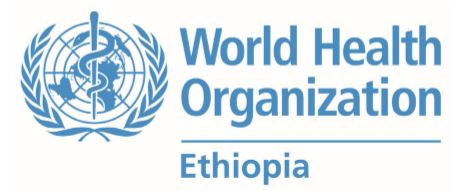In response to an unprecedented outbreak of Cutaneous Leishmaniasis in the Somali Regional state of Ethiopia, the World Health Organization's Ethiopia Country Office (WHO-Ethiopia) has taken swift action to address the public health crisis.
The first occurrence of Cutaneous Leishmaniasis was reported from the regional state in July 2023, and an additional 1023 cases were reported between July 26 and November 30, 2023.
While the Somali Region is known for being one of the six Visceral Leishmaniasis endemic regions in Ethiopia, this outbreak of Cutaneous Leishmaniasis is the first of its kind in the region and highlighted a critical gap in knowledge and experience among local health workers in diagnosing and managing cases.
To address this challenge, WHO-Ethiopia initiated a comprehensive capacity-building program, providing training to 60 medical doctors, health officers, nurses, and laboratory professionals from health facilities in the affected districts.
The training, conducted in the regional capital, Jigjiga, from November 28 to November 30, 2023, focused on the diagnosis and case management of Cutaneous Leishmaniasis based on WHO guidelines.
“The training aimed at decentralizing the diagnosis and treatment of Cutaneous Leishmaniasis to district hospitals, thereby improving access to timely and effective treatment for affected patients,” Dr. Henock Bekele, WHO Ethiopia Officer for Neglected Tropical Diseases (NTDs), indicated.
The trained health workers are equipped with improved knowledge and skills and are expected to return to their respective health facilities and contribute to control of the ongoing outbreak.
“The training initiative not only addresses the immediate challenge of the outbreak but also tackles the broader issue of a training gap in the region. With a focus on early detection, diagnosis, and management of Cutaneous Leishmaniasis, the program aims to build the overall capacity of health workers for effective prevention and control,” Dr. Nonhlanhla Dlamini, Acting Representative of WHO Ethiopia, said.
“The WHO-Ethiopia initiative signifies a collaborative effort with the regional government to address emerging health threats, demonstrating the organization's commitment to promoting global health security and resilience,” Dr. Dlamini added.
“As the trained health professionals return to their communities armed with knowledge and skills, the hope is to curtail the spread of Cutaneous Leishmaniasis in the Somali Region and establish a framework for future disease prevention and management,” Dr. Abdulahi Hambali, the Somali Regional Health Bureau Neglected Tropical Diseases Program Director indicated.
“The support of WHO to Somali regional state in capacity building of health workers is pivotal for controlling the Cutaneous Leishmaniasis outbreak in the region,” he added.
WHO Africa Regional Office (WHO AFRO) provided financial support to WHO-Ethiopia to address the outbreak by providing health worker capacity building, building of health workers, supervision of prevention and control activities, and sample referral to collaborating laboratories in Europe to know the species of the causative organism of the disease.
Ethiopia faces the burden of both Visceral and Cutaneous Leishmaniasis, with an annual incidence of 20,00 to 40,000 cases of Cutaneous Leishmaniasis, predominantly caused by Leishmania Aethiopica sub-species.
While the WHO Ethiopia country office has been providing support for Visceral Leishmaniasis cases, the recent outbreak prompted the need for specialized attention to Cutaneous Leishmaniasis, which is among the Neglected Tropical Diseases (NTDs) in Ethiopia.
Cutaneous Leishmaniasis is caused by a protozoan parasite transmitted by sandflies and can manifest as localized, mucocutaneous, or diffuse skin lesions.
Distributed by APO Group on behalf of World Health Organization (WHO) - Ethiopia.
Latest Stories
-
Today’s front pages: Tuesday, November 5, 2024
7 mins -
Galamsey: Investigation into attack on Joy News’ Erastus Asare and colleagues already growing cold
38 mins -
Mahama promises construction of stadia in all 16 regions if elected
56 mins -
Dampare has transformed Police training school – Bawumia
59 mins -
America braced as two stark visions collide on election day
1 hour -
NAPO urges Ghanaians to support NPP’s vision for national development
1 hour -
About 95% of PWDs in Obuasi have source of livelihood – MCE
1 hour -
Immigration Service intercepts 54 gallons of fuel
1 hour -
Election 2024: Roman Fada selected as flagbearer for Ghana Freedom Party
2 hours -
Bawumia to launch Ghana’s credit scoring system on Nov. 7
2 hours -
Alan to combat galamsey with strategic youth-centred business model
2 hours -
Agona Swedru chiefs commit to ending child marriage within their jurisdiction
2 hours -
Sunyani Traditional Council endorses Bawumia – NAPO government
2 hours -
Adutwum defends double track in Free SHS, citing research and positive outcomes
2 hours -
‘Prevent and condemn illegal pressure on Judiciary’ – AG to GBA
2 hours

